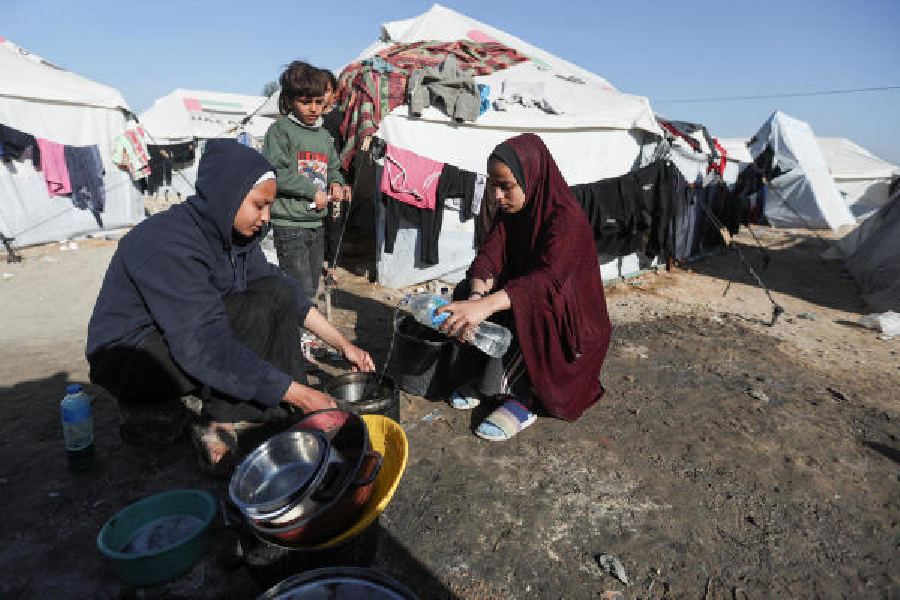After more than 100 days of war, Israel’s limited progress in dismantling Hamas has raised doubts within the military’s high command about the near-term feasibility of achieving the country’s principal wartime objectives: eradicating Hamas and also liberating the Israeli hostages still in Gaza.
Israel has established control over a smaller part of Gaza at this point in the war than it originally envisaged in battle plans from the start of the invasion, which were reviewed by The New York Times. That slower-than-expected pace has led some commanders to privately express their frustrations over the civilian government’s strategy for Gaza, and led them to conclude that the freedom of more than 100 Israeli hostages still in Gaza can be secured only through diplomatic rather than military means.
The dual objectives of freeing the hostages and destroying Hamas are now mutually incompatible, according to interviews with four senior military leaders, speaking on the condition of anonymity because they were not permitted to speak publicly about their personal opinions.
There is also a clash between how long Israel would need to fully eradicate Hamas — a time-consuming slog fought in the group’s warren of underground tunnels — and the pressure, applied by Israel’s allies, to wrap up the war quickly amid a spiralling civilian death toll.
The generals further said that a drawn-out battle intended to fully dismantle Hamas would most likely cost the lives of the Israeli hostages held in Gaza since October 7, when Hamas militants invaded Israel, killed roughly 1,200 people and took some 240 captives, according to Israeli estimates.
Hamas freed more than 100 hostages in November, but has said it will not release the others unless Israel agrees to completely cease hostilities. Most of the remaining hostages are thought to be held by Hamas cells that are hiding within the subterranean fortress of tunnels that extends for hundreds of miles beneath the surface of Gaza.
On Thursday, Gadi Eisenkot, a former army chief who is serving in the war cabinet, exposed a rift inside the government when he said in a television interview that it was an “illusion” to believe that the hostages could be rescued alive through military operations.
“The situation in Gaza is such that the war aims have yet to be achieved,” said Eisenkot, adding: “For me, there’s no dilemma. The mission is to rescue civilians, ahead of killing an enemy.”
That strategic bind has amplified the military’s frustration at the indecisiveness of Israel’s civilian leadership, according to the four commanders.
The commanders said that Prime Minister Benjamin Netanyahu’s equivocation about a postwar plan for Gaza was at least in part to blame for the military’s predicament on the battlefield.
Netanyahu has yet to clarify how Gaza will be governed after the war — and the commanders said that without a long-term vision for the territory, the army could not make short-term tactical decisions about how to capture the parts of Gaza that remain beyond Israeli control. Capturing the southernmost part of Gaza, which lines the Egyptian border, would require greater coordination with Egypt. But Egypt is unwilling to engage without guarantees from Israel over the postwar plan, three of the commanders said.
Asked for comment, Netanyahu’s office said in a statement that “The PM is leading the war on Hamas with unprecedented achievements in a very decisive manner.” In a speech on Thursday, Netanyahu promised both to achieve “total victory over Hamas,” and also rescue the hostages.
The Israeli military declined to respond to the commanders’ comments.
The generals fear that a lengthy campaign — without a postwar plan — would erode any remaining support from Israel’s allies, limiting their willingness to supply additional ammunition.
Foreign leaders have grown alarmed by the death toll caused by Israel’s campaign: More than 24,000 Gazans have been killed in the war, according to health authorities in the enclave, prompting accusations — strongly denied by Israel — of genocide. Gazan officials have not said how many of those killed were combatants, but Israeli military officials say the toll includes more than 8,000 fighters.
Families of hostages have become more vocal about the need to free their relatives through diplomacy not force. Some hostages taken into Gaza have since been declared dead — and it is not yet clear whether they were accidentally killed by Israeli forces or by Hamas.
Of the more than 100 hostages liberated since the invasion began, only one was freed in a rescue operation. The others were all swapped for Palestinian prisoners and detainees during a brief truce in November.
By focusing its efforts on destroying the tunnels, the military risks mistakes that could cost the lives of more Israeli citizens. Three Israeli hostages were already killed by their own soldiers in December, despite waving a white flag and shouting in Hebrew.
“Basically, it’s a stalemate,” said Andreas Krieg, a war expert at King’s College London. “It’s not an environment where you can free hostages,” he added.











